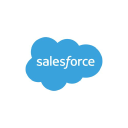How Two Brothers Started A Testosterone Replacement Business
Hello! Who are you and what business did you start?
Hi everyone! My name is Alastair Kennett and I’m one of the two founders of OptiMale. My brother David and I founded OptiMale just over 2 years ago. OptiMale is a testosterone replacement and men’s health clinic which provides effective treatment to men across the UK who suffer from low testosterone and fertility issues.
Both of us suffered from low testosterone in our late 20s to early 30s and we wanted to provide a convenient, effective and safe service to men like us. We found that treatment in this area was poorly provided and understood, both in the NHS public health service and by private doctors in the UK, with few clinics offering medication to maintain fertility and in the most modern applications.
We identified a gap in the market and aimed to provide a better service and treatment than anyone else by providing convenient consultations with pioneering doctors, medication delivered to patient’s homes through their letterbox, and support which was quick and easily available.
Our main target market is men with low testosterone between the ages of 25-80. We find that this issue affects adult men from all backgrounds and at all...

















